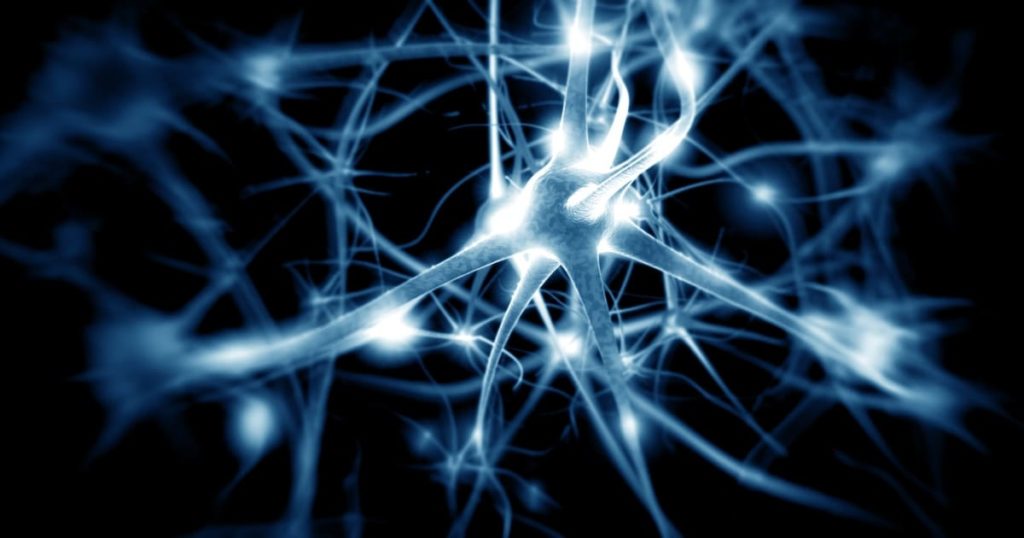Peripheral nervous system disorder is a term to describe damage to nerves that exists outside the spinal cord and brain, otherwise known as the central nervous system (CNS). There are a vast number of nerves outside the CNS including:
- The nerves of the head, face, eyes, nose and ears
- The nerves of muscles and the rest of the body, including spinal nerves
- The more than 100 billion nerves that run through the body
The brain makes the body’s muscles move by communicating with them through nerves. If a nerve is damaged, the brain cannot properly communicate to the muscle, causing pain, weakness, muscle dysfunction or even paralysis. Similarly, if a nerve that controls sensory perception is damaged, the result could be pain, abnormal sensations like tingling or vibrations, or loss of sensation altogether. Peripheral nervous system disorder can be caused by damage to any point on the nerve and may be found in one nerve, multiple nerves in one area of the body, or several nerves in different parts of the body. Neuropathy can be hereditary or environmental (for example, from exposure to toxins, illness or injury).
Treatment for Peripheral Neuropathy
Peripheral nervous system disorders are treated using a variety of methods. The first step is addressing the underlying issue that is causing the nerve damage. Once the underlying condition is controlled, if possible, attention is focused on several other methods of treatment:
- Physical therapy to try to maintain function of the affected muscles or body parts
- Occupational therapy for use of braces or assisted devices to perform the daily tasks of living
- Speech therapy to help with speaking, swallowing and breathing if the muscles/nerves in the throat are affected
- Supportive care in the event of a progressive neuropathy
- Medication
Medications used to treat peripheral nervous system disorders can range from over-the counter painkillers and anti-inflammatories, such as non-steroidal anti-inflammatory drugs (NSAIDs) to narcotic pain relievers, anticonvulsants, antidepressants and antiarrhythmic medications. When other therapies are not successful, narcotic pain relievers are often used to help control neuropathy pain. However, narcotic pain relievers can be addictive.
Non-Habit-Forming Medications
Studies have shown that anticonvulsant and antidepressant medications tend to be most successful at controlling pain caused by peripheral nervous system disorders. Additionally, use of these medications does not come with the addictive side effects of narcotic pain medications, making them an effective alternative for people who suffer from neuropathy pain but are also in recovery. However, controlling neuropathy pain can be tricky and medications that are effective for some may not be effective for others. Some of the following non-habit-forming medications may be helpful for you or a loved one suffering from neuropathy pain with concurrent addiction issues.
- Anticonvulsants, such as gabapentin, topiramate and carbamazepine work by blocking overactive transmissions of pain signals to the brain. Although there is a similarity between the effects of epilepsy and neuropathy pain on neurochemicals in the body, scientists do not completely understand the exact mechanism that makes anticonvulsants work on nerve pain. Side effects are limited and include dizziness, confusion or swelling in the feet.
- Antidepressants, such as amitriptyline, duloxetine hydrochloride or venlafaxine are used for their pain-relieving properties. Studies have shown that antidepressants work by activating or blocking certain receptors in the brain that create a feeling of euphoria and reduce pain sensations. However, the exact mechanism of action is still not understood completely. Side effects include sleepiness, dry mouth, constipation and urinary retention.
- NSAIDs, such as over-the-counter or prescription naproxen and ibuprofen can help with neuropathic pain that is mild. They may not be as effective with treating severe pain. NSAIDs work by reducing inflammation in the body that could be adding to the compression of nerves that are damaged. Reducing inflammation, and thus the compression of the nerve, could help alleviate pain. NSAIDs also contain some analgesic properties. Side effects are associated with prolonged use, over months or years, at high doses and include stomach pain, ulcers and bleeding, heartburn, headache and dizziness, ringing in the ears, liver or kidney dysfunction, high blood pressure, leg swelling and allergic reaction.
- Topical medications, such as lidocaine and capsaicin as lotions or in patches, work best on localized pain. These medications are absorbed through the skin at the site where the patch or lotion is placed and create a numbing effect. They are reported to affect neuropathic pain in much the same way as anticonvulsants, by blocking the overexcitability of nerves causing pain sensations. Side effects are minimal, if any.
- Vitamins and Supplements, such as the B vitamins (especially B1, B6 and B12) to help with nerve repair, thiamine to replace deficiencies due to alcohol abuse, vitamin D for pain reduction and vitamin E to help prevent cellular death. Vitamin supplementation is generally free of side effects when obtained through consumption of whole foods. But there may be side effects associated with overdose of vitamins or with allergic reaction to inactive ingredients contained in the supplement when in pill or powder form.
- Herbal Medications, such as ALA (alpha-lipoic acid), GLA (gamma linolenic acid), L-carnitine, Omega-3 oil and St. John’s Wort have been indicated in the treatment of pain with mixed results. Talk with your doctor before taking herbal supplements as some have been known to interact negatively with other medications and exacerbate certain medical issues.
If you or a loved one suffers from neuropathy pain and are seeking non-habit-forming therapies, speak with your doctor to determine which treatment method might be best for you. Sources: Overview of Peripheral Nervous System Disorders Peripheral Nerve Disorders Peripheral Neuropathy Fact Sheet Treatment of chronic pain: antidepressant, antiepileptic and antiarrhythmic drugs

